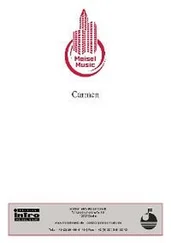Michael Cremo - Human Devolution - A Vedic Alternative To Darwin's Theory
Здесь есть возможность читать онлайн «Michael Cremo - Human Devolution - A Vedic Alternative To Darwin's Theory» весь текст электронной книги совершенно бесплатно (целиком полную версию без сокращений). В некоторых случаях можно слушать аудио, скачать через торрент в формате fb2 и присутствует краткое содержание. Год выпуска: 2003, ISBN: 2003, Издательство: Torchlight Publishing, Жанр: Старинная литература, на английском языке. Описание произведения, (предисловие) а так же отзывы посетителей доступны на портале библиотеки ЛибКат.
- Название:Human Devolution: A Vedic Alternative To Darwin's Theory
- Автор:
- Издательство:Torchlight Publishing
- Жанр:
- Год:2003
- ISBN:9780892133345
- Рейтинг книги:4 / 5. Голосов: 1
-
Избранное:Добавить в избранное
- Отзывы:
-
Ваша оценка:
- 80
- 1
- 2
- 3
- 4
- 5
Human Devolution: A Vedic Alternative To Darwin's Theory: краткое содержание, описание и аннотация
Предлагаем к чтению аннотацию, описание, краткое содержание или предисловие (зависит от того, что написал сам автор книги «Human Devolution: A Vedic Alternative To Darwin's Theory»). Если вы не нашли необходимую информацию о книге — напишите в комментариях, мы постараемся отыскать её.
Human Devolution: A Vedic Alternative To Darwin's Theory — читать онлайн бесплатно полную книгу (весь текст) целиком
Ниже представлен текст книги, разбитый по страницам. Система сохранения места последней прочитанной страницы, позволяет с удобством читать онлайн бесплатно книгу «Human Devolution: A Vedic Alternative To Darwin's Theory», без необходимости каждый раз заново искать на чём Вы остановились. Поставьте закладку, и сможете в любой момент перейти на страницу, на которой закончили чтение.
Интервал:
Закладка:
Esdaile (1852, p. 227) wrote: “It will no doubt be said by those who attempt to account for all the mesmeric phenomena through the influence of suggestion, expectation, and imagination, that this man became aware of my presence and intentions by smell or hearing, or by my fixed position, and altered breathing.” Esdaile explained that these objections could not apply to his experiments in mesmerizing the blind man at a distance. He wrote (1852, p. 228): “My first attempt to influence the blind man was made by gazing at him silently over a wall, while he was engaged in the act of eating his solitary dinner, at the distance of twenty yards. He gradually ceased to eat, and in a quarter of an hour was profoundly entranced and cataleptic. This was repeated at the most untimely hours when he could not possibly know of my being in his neighbourhood; and always with like results.” Esdaile performed some interesting experiments with what he called “mesmerized water.” Esdaile would “mesmerize” water by blowing into it with a tube and keeping his fingers on the surface. He performed experiments offering plain water and mesmerized water to his patients and found that the patients would go into mesmeric trance simply on drinking the mesmerized water, without being told what it was or why they were being asked to drink it (Esdaile 1846, pp. 158–164). In one set of experiments, Esdaile gave mesmerized water to patients whose sores were to be treated with nitric acid, usually quite painful. The patients felt nothing during the nitric acid treatments. These experiments were carried out over several years at six different hospitals. The patients had no idea they were being given mesmerized water. The water had been treated with tinctures of rhubarb and cardamom, along with aromatic spirit of ammonia. It was given to the patients at the same time as their normal medicine (Esdaile 1852, pp. 231–232).
Esdaile believed that the effects of mesmerism were caused by a subtle nervous fluid, which carried sense impressions to the brain and transmitted the willing powers of the brain to the bodily organs, thus producing various actions. The mesmerist could transfer this fluid from his body to that of his subject. Overloading the brain with the fluid brought about the mesmeric trance. Reducing the overload restored normal waking consciousness. Thoughts and feelings could also be transmitted by this fluid (Esdaile 1852, pp. 234–238). Esdaile apparently believed that the mind associated with the brain was endowed with a consciousness that possessed its own faculties, capable of operating without the bodily sense organs: “When we reflect that it is the mind that sees, smells, tastes, touches, and hears, and not the organs of sense, which are only the instruments that it uses; and that the divine Intelligence, from whence the human mind emanates, dispenses with the use of organs, and is yet all-knowing and omnipresent, it is difficult to see why the mind of man should not, under extraordinary circumstances, occasionally partake of the same powers in a limited degree” (Esdaile 1852, p. 49). This would explain the clairvoyance displayed by some mesmerized subjects. In terms of the categories I have proposed (matter, mind, and consciousness, or soul), Esdaile is conflating mind and consciousness. But this conflation is superior to the elimination of the mind and consciousness by some modern cognitive scientists.
alexis and adolphe Didier: two extraordinary mediums
The mediumship of Alexis and Adolphe didier provides many examples of clairvoyance. Their remarkable abilities can perhaps be traced to their father, who would sometimes spontaneously fall into a mesmeric trance while reading the daily newspaper. At such times, he would drop the paper but would continue to read it aloud, correctly. Sometimes Alexis and Adolphe, as an amusement, would take the paper into another room, and their father would still continue to read it aloud (dingwall
1967, pp. 159–60).
On May 17, 1847, Alexis didier and his mesmerist Mr. Marcillet went to visit Lord frederick fitzclarence at the Hotel Brighton, on the Rue Rivoli in Paris. The purpose was to demonstrate the clairvoyant powers of Alexis. Also present were Lord normanby, the English ambassador to france, and other distinguished guests. neither Lord frederick nor Lord normanby believed in mesmerism. After Marcillet had sent Alexis into trance, Lord frederick asked him to describe his country house. Alexis replied with an exact description of the house, its furnishings, and its location (Esdaile 1852, p. 80). A skeptic might propose that Alexis and Marcillet had somehow learned these details beforehand. But what are we to make of the following report by Marcillet? “Lord normanby took up one of Lord frederick’s books, and, having stated the number of a page, Alexis read a sentence in it, though the book was not out of Lord normanby’s hands. This experiment was repeated several times, and always with the same success” (Esdaile 1852, p.
81). Before the account of these incidents was published, it was forwarded to Lord frederick, who wrote: “I have read the statement you sent me relative to the séance that was held at my apartments when in Paris, in
1847, in Mesmerism. It is quite correct in every particular; indeed nothing could be much more extraordinary than the whole thing was in every respect” (Esdaile 1852, p. 82–83).
chauncey Hare Townshend (1852) gave an account of a session with Alexis didier in Paris, in October of 1851. The session took place at Townshend’s hotel room. Alexis was first hypnotized by Marcillet, who then left the room. Townshend was left alone with Alexis. Townshend wrote: “I feel convinced there was no clue to any particular knowledge about me.” To test the clairvoyance of Alexis, Townshend asked him to describe his house. Alexis answered that Townshend had two houses, one in London and another in the country. This was true. Townshend had recently acquired a place in London, and had a country home in Lausanne, Switzerland. Alexis wanted to know which house he was to describe. Townshend asked him to describe the house in the country.
“I was surprised at the accuracy of the description of my house near Lausanne,” said Townshend, “particularly at the mention of the small house on the left-hand side, where, according to Swiss custom, dwells my landlady. It was, in fact, a marking feature of the place, not to be guessed at by a stranger, and, as such, brought much conviction to my mind.” Townshend pressed Alexis for further details. Alexis said he could see water and trees around the house. This was true—the lake of Lausanne could be seen from the windows, and there were trees.
Townshend then asked Alexis to tell what he saw in the drawing room of the house. Alexis said, “You have a good many pictures on the walls. But now, this is curious—they are all modern, except two .” Townshend asked Alexis to tell about the latter two paintings. He said, correctly, that one was of a seascape and the other of a religious subject ( sujet religieux) . Townshend said, “I really felt something of a shudder at this extreme precision. How then was I astonished when Alexis went on to describe minutely the sujet religieux , which was a picture I had lately bought from an Italian refugee, and which had many striking peculiarities.”
About this picture, Alexis said, “There are three figures in the picture—an old man, a woman, and a child. can the woman be the virgin? no! She is too old! The woman has a book upon her lap, and the child points with its finger to something in the book! there is a distaff in the corner.” Alexis had correctly described the subject of the painting—St. Ann teaching the virgin Mary to read. Townshend then asked Alexis, “On what is the picture painted?” Alexis answered that it was neither canvass nor metal. After some thought, he said the painting was made on stone, and that the back of the stone was rough, greyish-black, and curved. All these details were correct. The painting was made on black marble.
Читать дальшеИнтервал:
Закладка:
Похожие книги на «Human Devolution: A Vedic Alternative To Darwin's Theory»
Представляем Вашему вниманию похожие книги на «Human Devolution: A Vedic Alternative To Darwin's Theory» списком для выбора. Мы отобрали схожую по названию и смыслу литературу в надежде предоставить читателям больше вариантов отыскать новые, интересные, ещё непрочитанные произведения.
Обсуждение, отзывы о книге «Human Devolution: A Vedic Alternative To Darwin's Theory» и просто собственные мнения читателей. Оставьте ваши комментарии, напишите, что Вы думаете о произведении, его смысле или главных героях. Укажите что конкретно понравилось, а что нет, и почему Вы так считаете.












